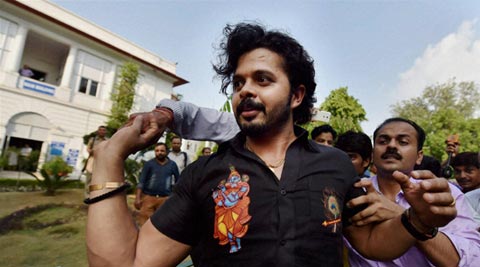
A smiling S. Sreesanth was on TV speaking about his plans to start practising and making his way back into the Indian team after the court exonerated him due to lack of evidence. On social media, Sreesanth’s fans have demonstrated support to their idol through hashtags screaming his innocence, and Kerala politicians have not been far behind. At this moment, the cricket board stepping in to say that his life ban from cricket will stay brings a much-needed reality check.
The exoneration by the court cannot be deemed as a clean chit. It only pulls up Delhi Police for trying to drag Sreesanth into the ambit of the Maharashtra Control of Organised Crime Act and refuses to accept the presence of an “organised crime syndicate” or a link between Sreesanth and Dawood Ibrahim. In fact, Additional Sessions Judge Neena Bansal Krishna cites the “want of appropriate law” to punish the culpable players. In the 175-page verdict, she writes: “This is a case which raises serious concerns about the rampant rot that has set in sports, especially commercial sports, and adequacy of existing laws to deal effectively with the prevailing situation…”